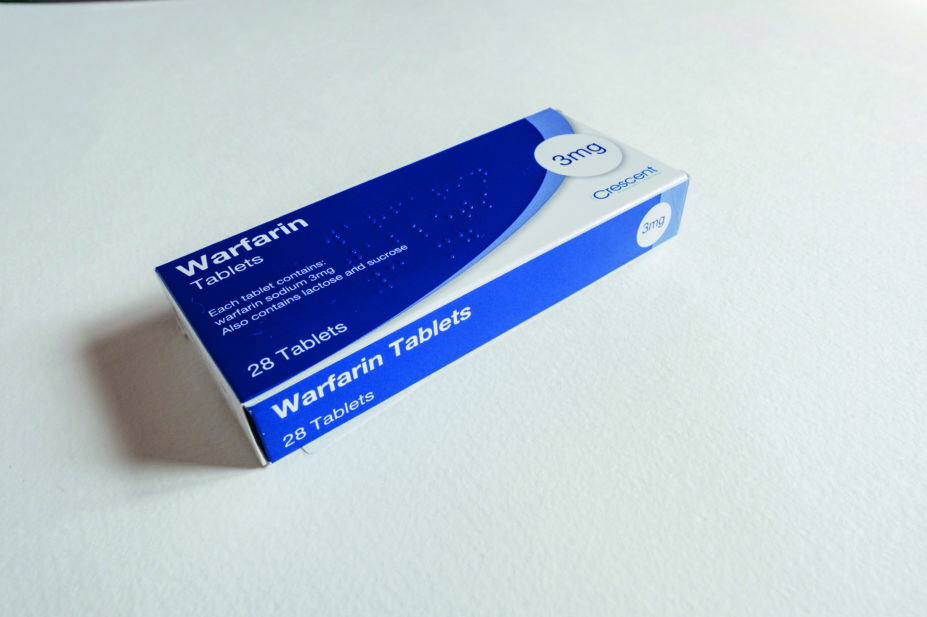
Shutterstock.com
Use of warfarin, a vitamin K antagonist, is associated with a significantly greater risk of knee and hip replacements compared with use of direct oral anticoagulants (DOACs), according to research presented at the American College of Rheumatology’s annual meeting on 7 November 2020[1]
.
The team identified 913 patients who had either had a knee or hip replacement (as an indicator of end-stage osteoarthritis) and matched them with 3,652 controls. Of the 913 surgery cases, 64.9% were warfarin users and 35.1% were DOAC users.
After adjusting for potential confounders, the researchers found that warfarin users had 1.57 times higher odds of having a knee or hip replacement than DOAC users (adjusted odds ratio 1.57, 95% confidence interval 1.30–1.89).
The risk of knee or hip replacement surgery was found to increase with duration of warfarin use.
“Our research supports the importance of adequate vitamin K and dependent proteins for limiting progression of [osteoarthritis],” said Priyanka Ballal, a rheumatology fellow at Boston University and lead author of the study.
“Given these potential adverse effects of warfarin on joint health, our study suggests that direct oral anticoagulants could be considered for managing atrial fibrillation among patients who have [osteoarthritis].”
References
[1] Ballal P, Peloquin C, Boer C et al. Warfarin use and risk of knee and hip replacements [abstract]. Arthritis Rheumatol 2020;72(S10). Abstract available at: https://acrabstracts.org/abstract/warfarin-use-and-risk-of-knee-and-hip-replacements/ (accessed December 2020)


